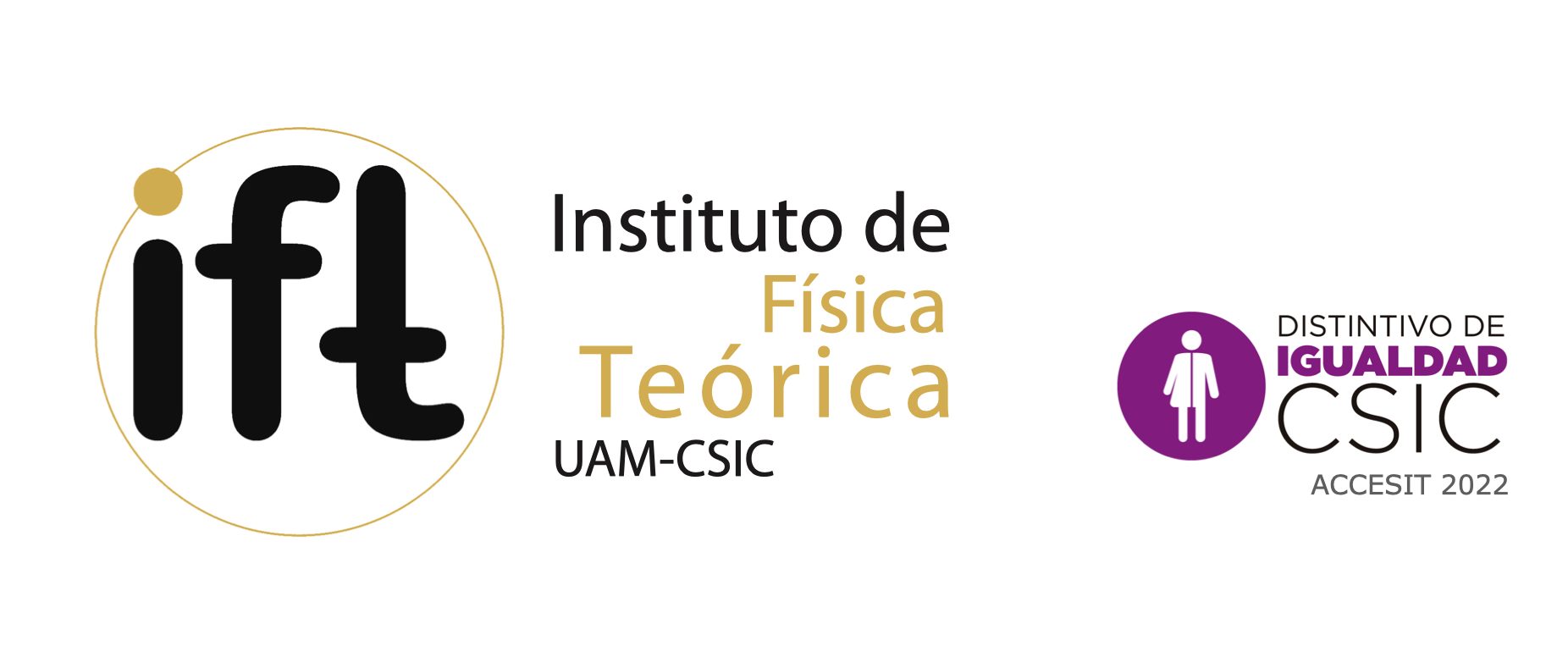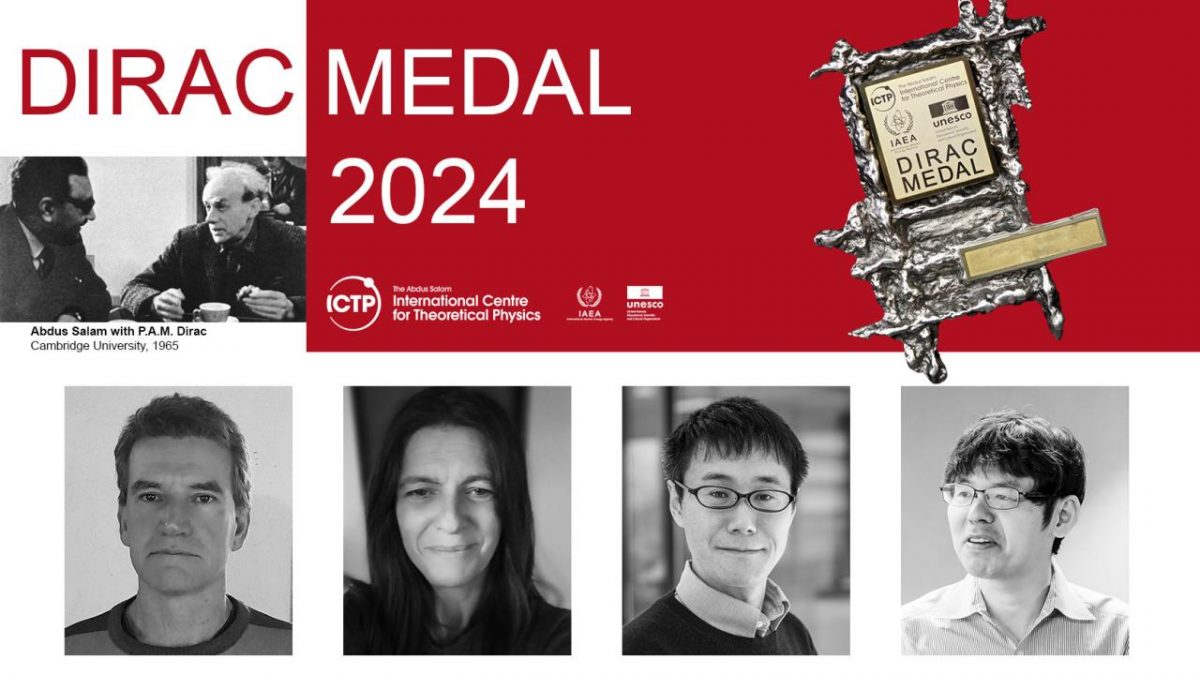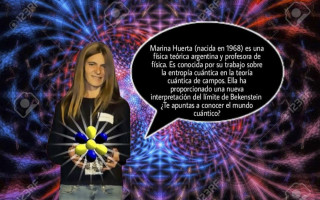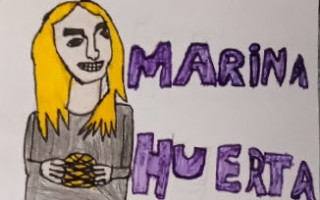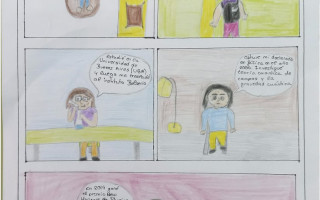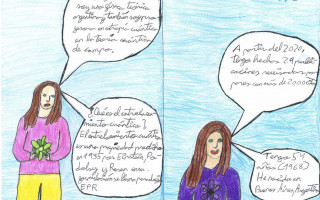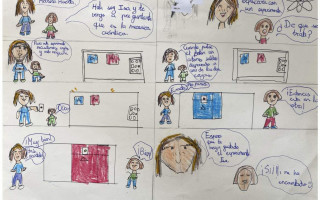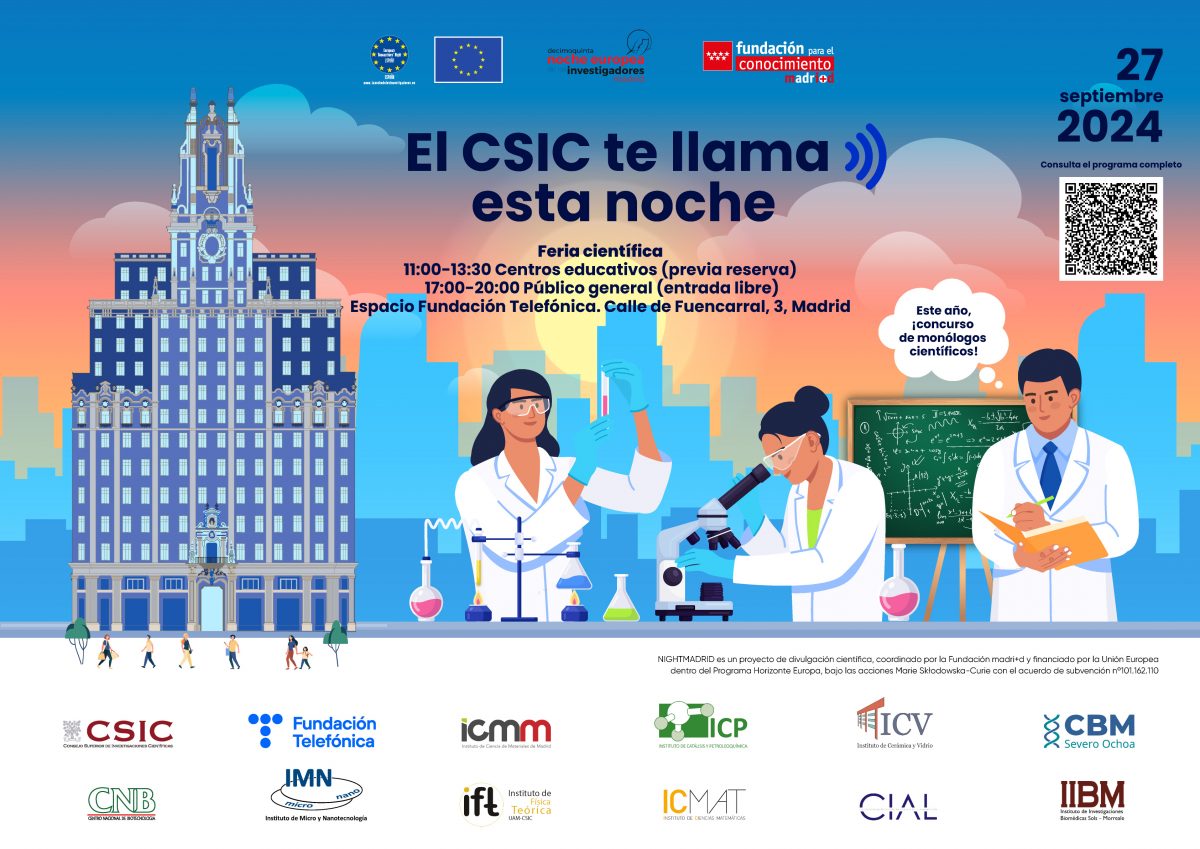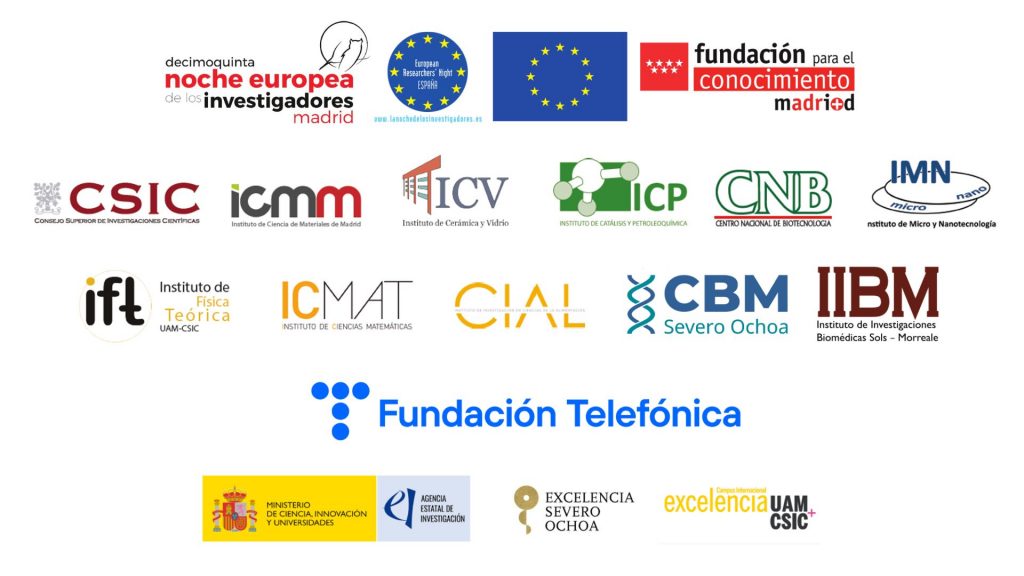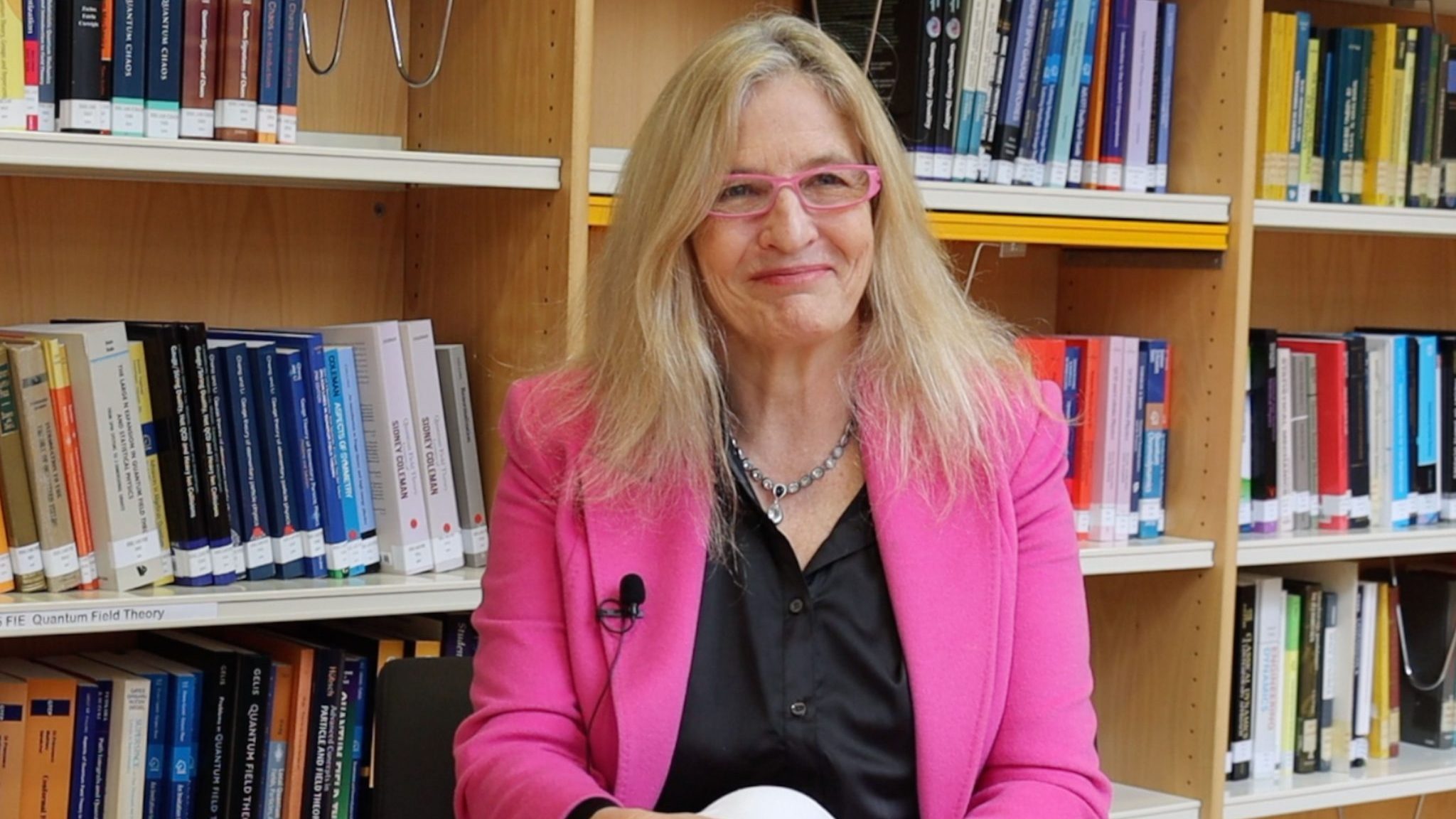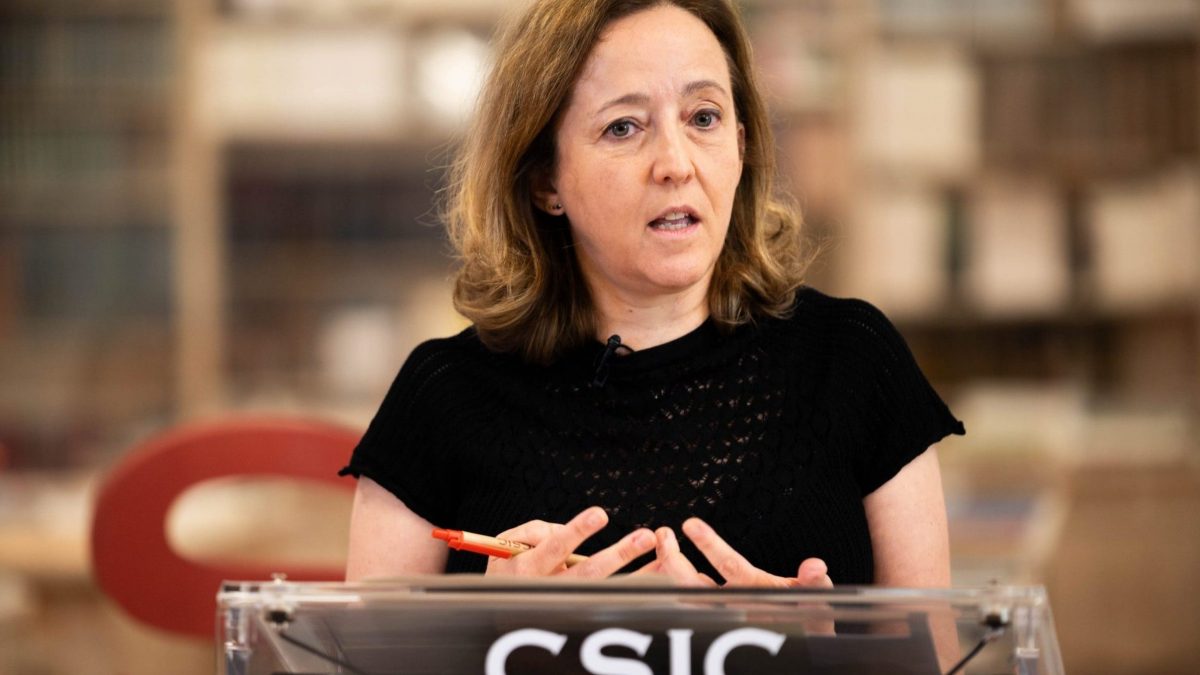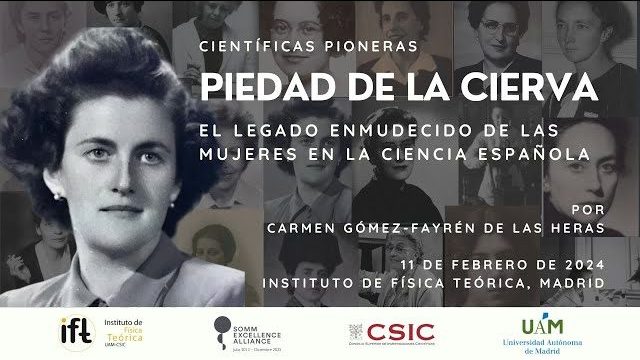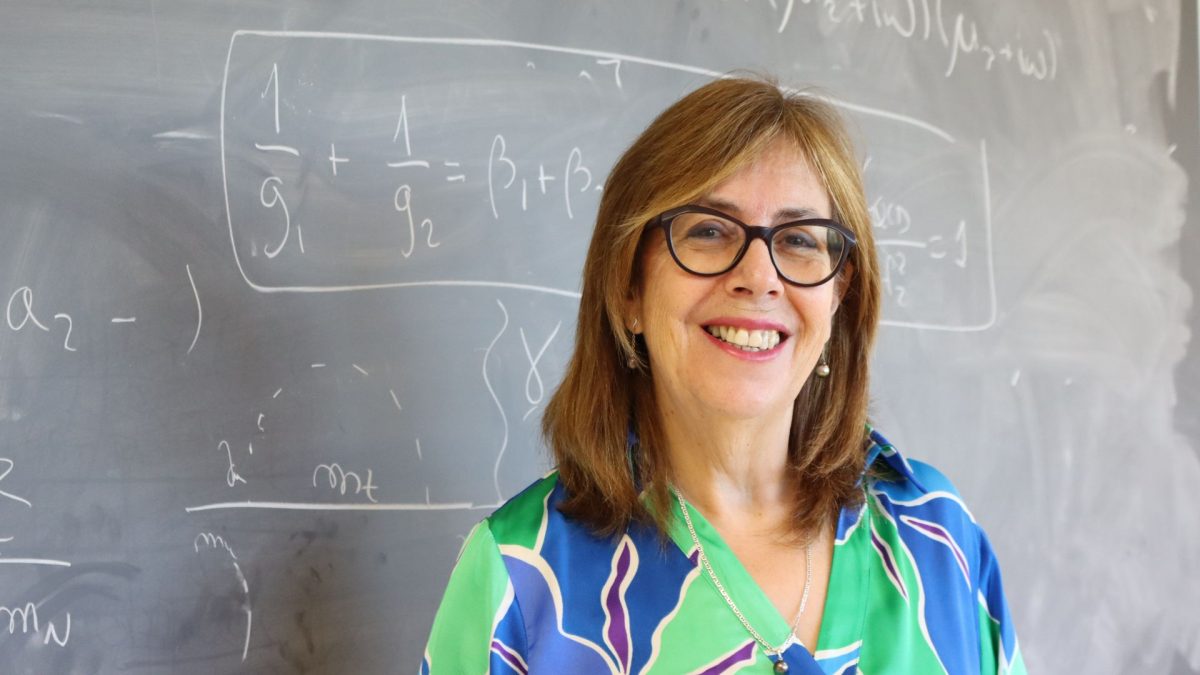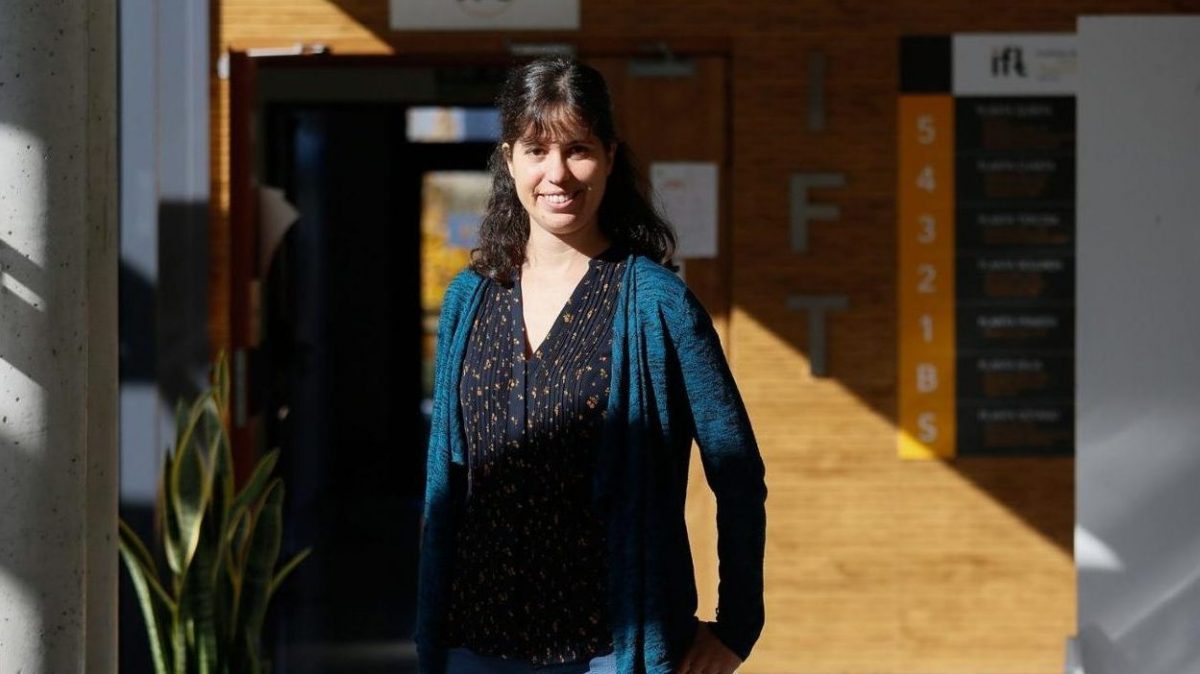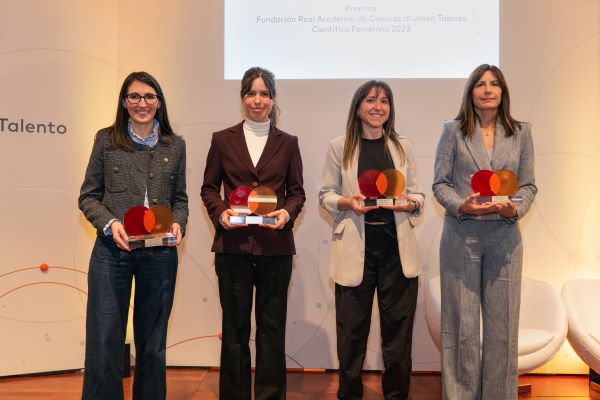Desentrañando la naturaleza de la materia oscura.
- Katherine Freese, cosmóloga especializada en materia oscura, visita esta semana el IFT para discutir con sus expertos los principales retos de este campo de investigación
- La materia oscura, que no vemos pero constituye el 85% de la materia del universo, podría estar formada de un nuevo tipo de partícula, o incluso de agujeros negros llamados primordiales.
- Una de las predicciones más importantes de Freese son las estrellas oscuras, alimentadas en parte por materia oscura, y que podrían ya haber sido observadas por nuestros instrumentos.
- La energía oscura es casi un 70% de todo el contenido del universo y podría explicar la expansión acelerada del mismo. Otra de las propuestas de Freese más interesantes es un modelo de expansión que podría requerir modificar las ecuaciones de Einstein.
Escrito por: Joaquín Lázaro Souverville
Madrid, 23 de mayo de 2024.– El pasado 21 de mayo, la cosmóloga experta en materia oscura Katherine Freese fue recibida por el Instituto de Física Teórica IFT UAM/CSIC para impartir un coloquio para compartir las últimas investigaciones en materia oscura. Durante su conferencia, explicó cómo la descubrimos y tratamos de detectarla, de qué podría estar hecha y cómo se ha estudiado. Hablando de su propia investigación, destacó especialmente sus ‘estrellas oscuras’, aquellas que están formadas, en parte, de materia oscura como fuente de calor. En una entrevista concedida al IFT, Freese compartió algunos temas de los que habló en el coloquio, expandió algunos detalles sobre su trabajo y terminó con algunos consejos para estudiantes de Física.
Katherine Freese es Profesora de Física en la Universidad de Texas en Austin y profesora en la Universidad de Estocolmo. Ella describe su trabajo como el estudio de “las partículas más pequeñas del universo explicando las estructuras más grandes”. Abarca cosmología, física de partículas y de qué está hecho el universo, centrándose especialmente en la materia oscura.
Qué es la materia oscura
Freese describió la materia oscura como una sustancia extraña, que no vemos directamente. Tan solo su influencia en objetos a su alrededor. “Hay 5 veces más materia oscura que materia ordinaria en nuestra propia Vía Láctea. Si tomamos todo lo que conocemos sobre tu cuerpo, el aire, las paredes, el Sol, los planetas, todo lo que sabemos, todo hecho de átomos, todo eso, suma solo el 5% del universo. Esto es increíble” explicó la investigadora “Y tenemos 25% materia oscura, 70% energía oscura”.
El problema de la materia oscura tiene una historia de 90 años de estudio. Empezó con Knut Lundmark y Fritz Zwicky en los años 30. Zwicky observó cúmulos de galaxias, y algunas parecían moverse demasiado rápido si la única atracción gravitatoria que sentían se debía a la materia estelar observable. Zwicky fue quien acuñó el término ‘materia oscura’ como propuesta para explicar este fenómeno: un nuevo tipo de materia que no podemos ver, pero que interactúa por medio de la gravedad con su entorno. Así, habría algo de atracción adicional que explicaría los movimientos de las galaxias.
En los 70, la idea de la materia oscura fue más ampliamente aceptada en la comunidad científica gracias al trabajo de Vera Rubin. Ella observó que las estrellas orbitaban demasiado rápido alrededor del centro de la galaxia, un problema semejante al que se encontró Zwicky 40 años antes. Y propuso la misma solución.
Estas fueron pruebas clave para el descubrimiento de la materia oscura, pero Freese señaló que hoy en día tenemos muchas más para confirmar su existencia. Aunque la materia oscura no emita luz, sí la desvía, como cualquier cuerpo con masa. Esto hace que observemos lo que llamamos lentes gravitatorias, imágenes de cuerpos celestes distorsionadas por esta desviación de la luz.
También destacó el conocido como Cúmulo Bala, dos cúmulos de galaxias en colisión en los que se puede observar cómo el gas de ambos choca en el centro, pero la materia oscura pasa sin impacto alguno, atravesando tanto la materia ordinaria como la demás materia oscura. Al no tener interacción electromagnética con nada, ni consigo misma, no sufre ninguna colisión. Freese señaló este cúmulo como la mejor prueba de que estamos observando dos tipos de masas que se comportan de forma diferente. La materia ordinaria que podemos observar, y la materia oscura.
Candidatos a materia oscura: partículas o agujeros negros
Dado que no conocemos la naturaleza de esta materia, el trabajo de científicos como Freese se centra en averiguar de qué está hecha. La investigadora destacó tres como los mejores candidatos: los WIMPs, los axiones y los agujeros negros primordiales.
Los WIMPs son Partículas Masivas Débilmente Interactuantes (o en inglés Weakly Interactive Massive Particles). Como su nombre indica, se tratan de partículas que, además de experimentar la gravedad, también sienten fuerza débil, la interacción fundamental responsable de algunos tipos de radiactividad. Freese explica la razón de que sean candidatos prometedores: “En el universo temprano, podemos calcular cuántas partículas había de todos los tipos diferentes. Y si estas se aniquilaban a sí mismas con la fuerza débil, podemos preguntar cuántas quedan en el universo hoy en día. Y el resultado es exacto para resolver el problema de la materia oscura”.
Por otra parte, los axiones son partículas elementales hipotéticas que surgieron para resolver un problema de la mecánica cuántica. Sin embargo, al estudiar las propiedades que tendrían, se comportarían como la materia oscura que observamos, y tendrían una masa que cuadraría con la cantidad esperada de materia oscura. Freese señaló a los WIMPs y axiones como buenas opciones porque no se inventaron únicamente para resolver el problema de la materia oscura. “Hay problemas en teoría de partículas que, al resolverlos, resultarían en estas partículas que también explican la materia oscura”.
También habló de los agujeros negros primordiales. Explicó cómo en el universo temprano habría fluctuaciones de densidad, regiones en las que se acumularía más masa que en otras. Si esa masa era suficiente, podría colapsar en un agujero negro. La detección de agujeros negros primordiales es algo que se ha planteado ante los resultados ofrecidos por LIGO (Laser Interferometry Gravitational-waves Observatory), un observatorio de ondas gravitatorias que podría ser capaz de detectar estos candidatos a materia oscura.
Al preguntarle cuál de estos era su candidato favorito, Freese respondió: “No soy capaz de elegir uno yo misma porque eso requeriría fe. En la ciencia tenemos que esperar a ver qué es la realidad”. Aunque haya trabajado mucho con WIMPs, señaló la promesa de los axiones o los agujeros negros primordiales como buenos candidatos por igual.
Ante la cuestión de cómo detectar WIMPs o axiones, Freese describió dos tipos de detección: directa e indirecta. La directa consiste en grandes detectores subterráneos basados en cálculos hechos por la misma Freese, entre otros. Han de estar bajo tierra para evitar falsos positivos detectando otras partículas que los atraviesen, como rayos cósmicos. Se están realizando esfuerzos con estos detectores para que en los próximos años se logre alguna observación, y Freese indicó que el detector DAMA en Italia ya está dando resultados prometedores.
Detección indirecta mediante rayos gamma y el experimento Fermi-LAT
Por otro lado, Freese aclaró que existen otras formas innovadoras de detectar materia oscura indirectamente. Un claro ejemplo que destacó es el Telescopio de Gran Área (LAT), a bordo del satélite Fermi de la NASA. Con él, buscan señales de aniquilación de materia oscura en forma de rayos gamma procedente de sitios que puedan tener mucha materia oscura, como el centro de nuestra galaxia. En lugar de la detección directa de las partículas de materia oscura, se trata de la detección indirecta de los productos de sus interacciones. El investigador del IFT Miguel Ángel Sánchez Conde es Coordinador Científico Adjunto de esta colaboración Fermi-LAT, participando en este esfuerzo internacional por discernir si estas señales de rayos gamma se tratan de otros sucesos, o son señales de materia oscura.
Estrellas alimentadas por materia oscura: las estrellas oscuras
Parte del trabajo de Freese en materia oscura trata con un tipo de objeto que ella misma propuso en 2007, junto con Paolo Gondolo y Douglas Spolyar: las estrellas oscuras. Lo primero en lo que Freese insistió al explicar qué son sus estrellas oscuras es que no están hechas de materia oscura. Están hechas de materia ordinaria, hidrógeno y helio, y un poco de materia oscura. Lo que hace esta materia oscura es proporcionar una fuente de calor.
El Sol y las demás estrellas ordinarias tienen fusión en sus núcleos, fusionan hidrógeno en helio y generan energía que las mantienen luminosas y calientes. Esto no sucede con las estrellas oscuras. Según Freese, serían las primeras estrellas en formarse en el centro de objetos protogalácticos, futuras galaxias en el universo temprano. Al encontrarse en regiones con mucha materia oscura, también habría mucha aniquilación de la misma. Esta aniquilación significa que se juntan dos partículas de materia oscura, y otras partículas distintas salen de esa interacción. Esas partículas tienen energía, y al quedarse atascadas en las nubes de hidrógeno y helio, las convierte en una estrella que Freese describió como muy extraña.
Pueden medir de ancho 10 veces la distancia de la Tierra al Sol. Su masa empieza semejante a la del Sol, pero puede continuar creciendo hasta ser un millón de veces más masiva, y mil millones de veces más luminosa. Esto significa que son observables, ya que pueden ser tan brillantes como toda una galaxia.
El James Webb Space Telescope (JWST), el telescopio más potente en funcionamiento lanzado en enero de 2022, podría detectarlas, ya que es capaz de observar objetos muy lejanos, pertenecientes al universo temprano. Freese indicó que ya ha encontrado objetos que podrían ser estrellas oscuras: “Hemos identificado algunos candidatos que tendrían el espectro adecuado”. Aún no se puede confirmar por falta de información, como si se trata de objetos puntuales, que sería el caso de las estrellas oscuras, o extensos, como una galaxia. Pero Freese expresó su optimismo sobre futuras observaciones del James Webb. Considera que podremos observar objetos más cuidadosamente y determinar si realmente son estrellas oscuras.
Energía oscura
Freese describió la energía oscura como algo que está causando la aceleración de la expansión del universo, y que compone el 70% del mismo. Por contraste, definió la materia como objetos que interactúan por medio de la gravedad, atrayéndose. Sin embargo, la energía oscura tiene algún tipo de comportamiento repulsivo.
Pero aunque se sepa poco con certeza, hay teorías al respecto. Freese explicó una de las teorías más conocidas: podría tratarse de un tipo de energía de vacío. En este caso, la palabra vacío no significaría ausencia, hay algo ahí. “En esta habitación en la que estamos hablando ahora mismo hay pares partícula-antipartícula que surgen espontáneamente y pronto desaparecen” dijo. “Hay experimentos que han demostrado esto”. Con este planteamiento, se puede calcular esta energía de vacío. Sin embargo, la teoría da resultados demasiado altos comparados con las observaciones. Freese indicó que sabemos que no es tan alta como dicen las matemáticas, pero tampoco es cero, y no sabemos explicar esto.
Freese trabajó en una alternativa que no requiere de energía de vacío, la expansión Cardassian. Propone que el universo está hecho únicamente de materia, oscura y ordinaria, sin energía de vacío, pero con unas ecuaciones diferentes. En este modelo no habría energía oscura, pero las ecuaciones de Einstein podrían requerir modificaciones. Hay muchos modelos teóricos como este tratando de explicar la energía oscura, aunque todavía no hayan sido comprobados. “Este es un problema muy difícil” concluyó Freese.
El trabajo en física según Katherine
Pero, aun enfrentándose con problemas tan difíciles, Freese reconoció que le divierte. Le gusta la creatividad de la ciencia, poder interactuar con otras personas lanzando ideas. “Recuerdo que mi hijo solía entrar en la habitación diciendo ‘Yo también quiero jugar’ porque veía que me estaba divirtiendo mucho. Disfruto del proceso de entender estos puzles fundamentales del universo”.
Ante la cuestión de posibles aplicaciones, admitió que no se para a pensar en la influencia práctica que pudiera tener su investigación, porque no se puede saber si la tendrá o no. “No creo que la aniquilación de materia oscura vaya a encender una bombilla. Pero si entiendes qué es la mayor parte de la materia del universo, no puedes decirme que eso no va a ser importante para nuestra vida diaria”. Señaló que en el lado práctico, nunca sabes cuáles podrían ser las consecuencias de un descubrimiento.
Para finalizar, Freese terminó con algunos consejos para estudiantes y futuros físicos. Lo primero que destacó fue la importancia de encontrar un buen mentor, alguien que te lleve en direcciones interesantes y con quien puedas tener una buena relación. Pero sobre el trabajo en general, dijo “Cree en ti mismo. Si tienes una pasión por algo, síguela”

